-
Fonsie Mealy’s, Oct. 1-2: The Corner-stone Document of Irish Freedom: 1916 PROCLAMATION OF THE IRISH REPUBLIC. €100,000 to €150,000.Fonsie Mealy’s, Oct. 1-2: Important 18th Century Gaelic Scribal Manuscript. Ceating (Dochtuir) [Keating, Dr. Geoffrey]. Forus Feasa ar Éirinn. €15,000 to €20,000.Fonsie Mealy’s, Oct. 1-2: Rare Irish Provincial Printed 18th Century Herbal. K'eogh (John). Botanalogia Universalis Hibernica, or, A General Irish Herbal, Calculated for this Kingdom… €1,500 to €2,000.Fonsie Mealy’s, Oct. 1-2: Somerville (E.OE.) The Discontented Little Elephant. Inscribed presentation copy. €700 to €1,000.Fonsie Mealy’s, Oct. 1-2: Broadside: “Great News from Dublin, Giving a True Account of the Seizing of a Ship coming from Ireland, with Fifty Commissions from the late King James…” €800 to €1,000.Fonsie Mealy’s, Oct. 1-2: Welch (Rbt.) Photographer: Six photographic prints of the Titanic. €800 to €1,200.Fonsie Mealy’s, Oct. 1-2: Rare Modern Irish Masterpiece. O’Brien (Flann). At Swim-Two-Birds. €3,000 to €4,000.Fonsie Mealy’s, Oct. 1-2: Newton (Sir Isaac). Opticks : or, A Treatise of the Reflections, Refractions, Inflections and Colours of Light. €3,000 to €4,000.Fonsie Mealy’s, Oct. 1-2: [Natural History] Donovan (Edward). The Natural History of British Birds; or a Selection of the Most Rare, Beautiful and Interesting Birds which Inhabit this Country. €3,000 to €4,000.Fonsie Mealy’s, Oct. 1-2: The Authors First Publication. Heaney (Seamus). Eleven Poems. €1,000 to €1,500.Fonsie Mealy’s, Oct. 1-2: Heaney (Seamus). Remembering Malibu. €3,500 to €5,000.
-
Chiswick Auctions
Bulldog Spirit: The Churchill Sale
30th September 2025Chiswick Auctions, Sep. 30: Churchill (Winston Spencer). The World in Crisis. Inscribed in 4 vols. 1923-31. £20,000 to £30,000.Chiswick Auctions, Sep. 30: Churchill (Winston Spencer). A V for Victory Cartier silver pendant. £2,000 to £3,000.Chiswick Auctions, Sep. 30: British School, mid 20th century (After Graham Sutherland) Portrait of Sir Winston Churchill. £2,000 to £3,000.Chiswick Auctions
Bulldog Spirit: The Churchill Sale
30th September 2025Chiswick Auctions, Sep. 30: Churchill (Winston Spencer). Signed typed letter, 1963. £1,500 to £2,000.Chiswick Auctions, Sep. 30: Churchill (Winston Spencer). The Collected Works, 38 vol., Centenary Limited Edition. £3,000 to £4,000.Chiswick Auctions, Sep. 30: Churchill (Winston Spencer). Photographic half-length portrait, signed ("Winston Churchill, 1953"). £2,000 to £3,000. -
30th September 2025 Chiswick Auctions, Sep. 30: Dickens: "Phiz" Original Drawings to Little Dorrit. 1857. £25,000 to £35,000.Chiswick Auctions, Sep. 30: Shaw (George) & Nodder (Frederick P.) The Naturalist's Miscellany, 24 vols., 1789 – 1813. £4,000 to £6,000.Chiswick Auctions, Sep. 30: Photographic. Afghanistan - Military [1878-80]. Photographic albumen prints. £3,000 to £4,000.Chiswick Auctions, Sep. 30: Tuke Correspondence [Tea, Coffee & Cocoa] etc. 1732-1852. Over five hundred letters. £1,000 to £1,500.Chiswick Auctions, Sep. 30: Indian Mutiny. Dodgson. Als' Lucknow 26th.Sept. 1857. £1,200 to £1,500. -
Sotheby’s
By a Lady
1-15 October 2025Sotheby’s, Oct. 1-15: Austen, Jane. A long and intimate autograph letter signed ("JA"), to Cassandra Austen. $300,000 to $400,000.Sotheby’s, Oct. 1-15: Austen, Jane. “Lines on Maria Beckford,” autograph manuscript signed ("Jane Austen"). $100,000 to $150,000.Sotheby’s, Oct. 1-15: [Austen, Jane]. Emma, the extraordinary Edgeworth-Butler copy. $250,000 to $350,000.
Rare Book Monthly
Book Catalogue Reviews - November - 2009 Issue
Important Signed Documents from the Raab Collection
Item 21 is a very important, recently discovered item of American history. It is a letter previously known only in draft form from President Andrew Jackson concerning the removal of America's southern Indians to lands west of the Mississippi. It is an early attempt by Jackson to cajole the Indians into moving voluntarily. Jackson plays the role of benevolent father, trying to preserve their way of life and save them from white settlers. As we now know, when Jackson was unable to cajole them into leaving, he was quite willing to use force to remove them from their homelands. This letter is dated October 15, 1829. It is written to Major David Halley, who was his representative to the Choctaw and Chickasaw nations. In it Jackson explains the message he wants relayed to these tribes. Jackson instructs Haley, "say to them as friends and brothers to listen [to] the voice of their father, & friend. Where [they] now are, they and my white children are too near each other to live in harmony & peace." However, Jackson continues, he has provided land for them on the other side of the Mississippi upon which whites have no claim, "and they & their children can live upon [it as] long as grass grows or water runs, in peace and plenty. It shall be theirs forever." Continuing in a paternalistic tone, Jackson instructs, "Say to my red Choctaw children, and my Chickasaw children to listen." He explains that if they remain, they will be subject to the laws of the states of Mississippi and Alabama, not the laws of their own nation. He next claims that he is powerless to stop the states from exercising this control, "...that so far from the United States having a right to question the authority of any State to regulate its affairs within its own limits, they will be obliged to sustain the exercise of this right." As Raab notes, this is a most interesting claim from Jackson, as the Indians were granted this land for their own nations by federal treaty, and Jackson would have no problem enforcing federal authority over the internal affairs of a state a few years later during the Nullification Crisis. However, Jackson repeatedly proclaims to be the Indians' friend and father, playing the role of someone who wants to preserve their nations, but won't be able to protect them unless they cooperate by agreeing to move. As we know, when most refused to move voluntarily, they were forced to do so, and the lands promised to be "theirs forever" would similarly be taken away only a few decades later. $90,000.
It is unusual to see someone run for president as a nonpartisan, even more unusual for such a person to actually mean it. Zachary Taylor was such a candidate, and in 1848, that approach had enough public appeal to get him elected. The Whigs were facing a difficult election in 1848, having opposed the recently concluded and popular Mexican War, and their most likely candidate, Henry Clay, had already lost a couple of times before. So they turned to Taylor, a non-politician who, as a general and hero of the Mexican War, could neutralize objections to their opposition to the war. Taylor agreed to run, but made it clear he would not be beholden to any Whig doctrines, only to his own beliefs. On March 26, 1848, when his name was being bandied about as a potential Whig candidate, Taylor wrote a letter to Dr. John Kearsley Mitchell of Philadelphia. Writes Taylor, "If honored by election to the Presidency I will strive to execute with fidelity the trust reposed in me, uncommitted to the principles of either party." Taylor lived up to that pledge, unwilling to follow anyone's party line or compromise his way to consensus. However, he died only a little over a year in office, and unlike Taylor, his successors attempted to compromise their way out of the North-South, slave/free issue, only to aggravate the problem beyond repair. Item 22. $7,200
You may reach The Raab Collection at 800-977-8333. Their website is www.raabcollection.com.

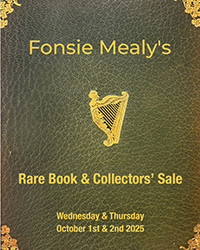
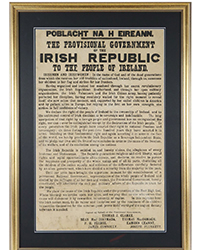
![<b>Fonsie Mealy’s, Oct. 1-2:</b> Important 18th Century Gaelic Scribal Manuscript. Ceating (Dochtuir) [Keating, Dr. Geoffrey]. <i>Forus Feasa ar Éirinn.</i> €15,000 to €20,000. Fonsie Mealy’s, Oct. 1-2: Important 18th Century Gaelic Scribal Manuscript. Ceating (Dochtuir) [Keating, Dr. Geoffrey]. Forus Feasa ar Éirinn. €15,000 to €20,000.](https://ae-files.s3.amazonaws.com/AdvertisementPhotos/c6be72f5-d9e0-45ec-9a8d-b6df7ba62e31.jpg)
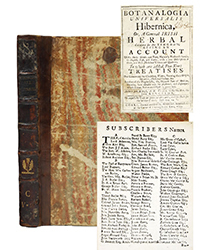
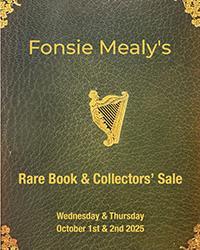
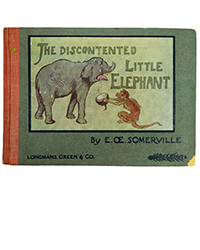
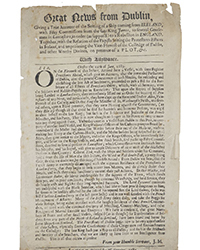
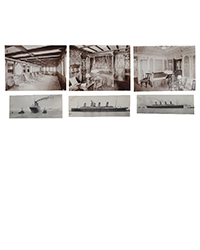
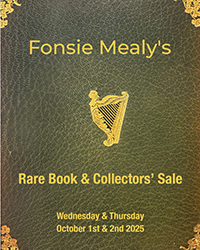
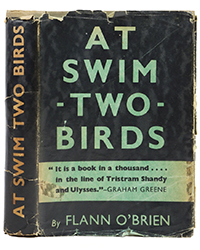
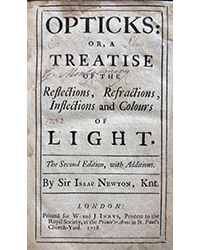
![<b>Fonsie Mealy’s, Oct. 1-2:</b> [Natural History] Donovan (Edward). <i>The Natural History of British Birds; or a Selection of the Most Rare, Beautiful and Interesting Birds which Inhabit this Country.</i> €3,000 to €4,000. Fonsie Mealy’s, Oct. 1-2: [Natural History] Donovan (Edward). The Natural History of British Birds; or a Selection of the Most Rare, Beautiful and Interesting Birds which Inhabit this Country. €3,000 to €4,000.](https://ae-files.s3.amazonaws.com/AdvertisementPhotos/a0c801e1-3019-451a-add6-0251a91f714b.jpg)
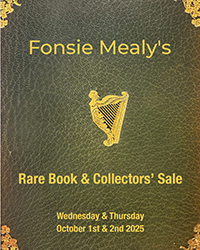
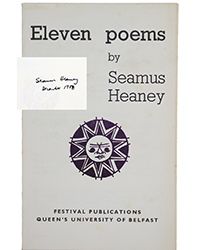
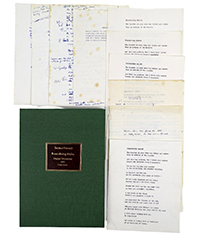
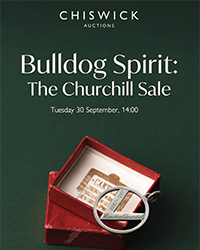
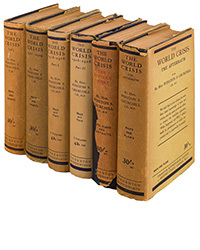
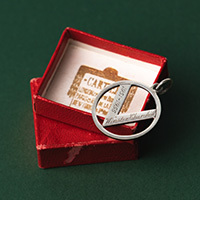
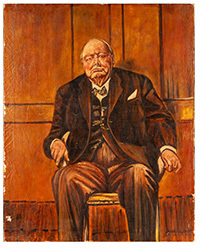
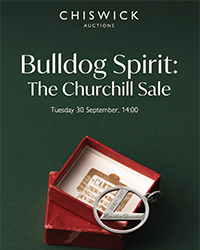
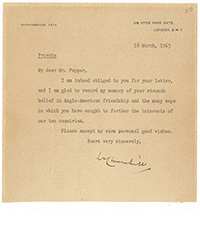
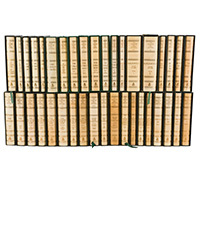
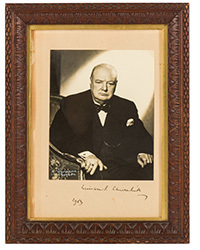



![<b>Chiswick Auctions, Sep. 30:</b> Photographic. Afghanistan - Military [1878-80]. Photographic albumen prints. £3,000 to £4,000. Chiswick Auctions, Sep. 30: Photographic. Afghanistan - Military [1878-80]. Photographic albumen prints. £3,000 to £4,000.](https://ae-files.s3.amazonaws.com/AdvertisementPhotos/ee56331a-7d5f-4328-87ea-65d03569d77f.jpg)
![<b>Chiswick Auctions, Sep. 30:</b> Tuke Correspondence [Tea, Coffee & Cocoa] etc. 1732-1852. Over five hundred letters. £1,000 to £1,500. Chiswick Auctions, Sep. 30: Tuke Correspondence [Tea, Coffee & Cocoa] etc. 1732-1852. Over five hundred letters. £1,000 to £1,500.](https://ae-files.s3.amazonaws.com/AdvertisementPhotos/53972d0e-a521-4dfe-a282-f3aeff54efdc.jpg)

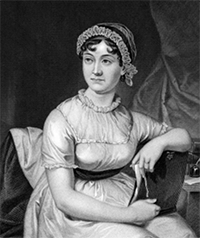
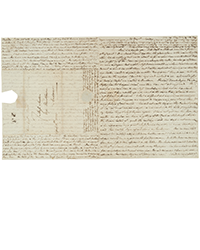

![<b>Sotheby’s, Oct. 1-15:</b> [Austen, Jane]. Emma, the extraordinary Edgeworth-Butler copy. $250,000 to $350,000. Sotheby’s, Oct. 1-15: [Austen, Jane]. Emma, the extraordinary Edgeworth-Butler copy. $250,000 to $350,000.](https://ae-files.s3.amazonaws.com/AdvertisementPhotos/079d8567-8397-4add-975e-22b6520389b4.png)

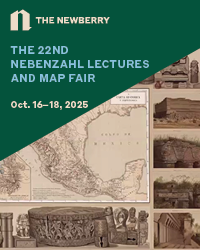
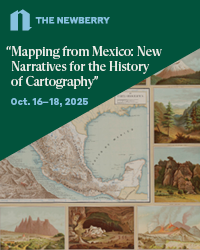
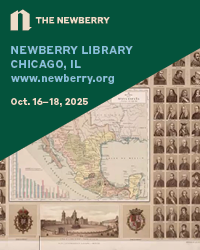

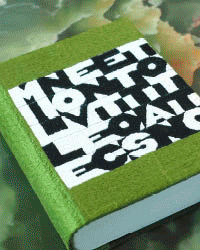
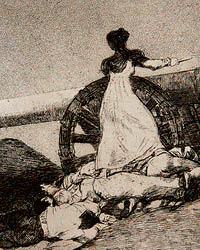
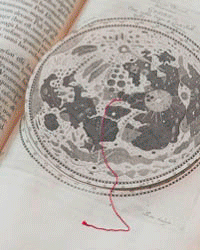
![<b>Il Ponte, Sep. 30-Oct. 1:</b> REDOUTÉ, Pierre-Joseph - Douze Bouquets. Parigi e New York: [s.d., ma ca. 1835]. € 15.000 - 25.000 Il Ponte, Sep. 30-Oct. 1: REDOUTÉ, Pierre-Joseph - Douze Bouquets. Parigi e New York: [s.d., ma ca. 1835]. € 15.000 - 25.000](https://ae-files.s3.amazonaws.com/AdvertisementPhotos/52dd1cf6-f094-4432-955c-f3b20077eb95.jpg)
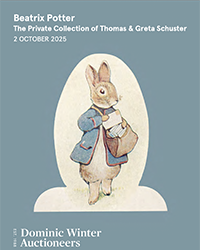
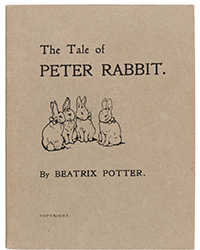
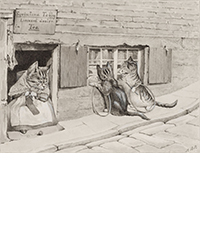
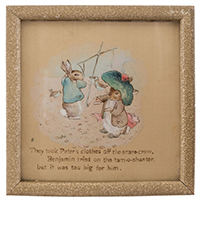
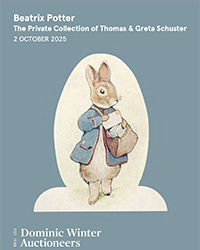
![<b>Dominic Winter, Oct. 2:</b> Potter (Beatrix, illustrator). <i>A Happy Pair,</i> 1st [and only] edition, 1890. £5,000-£8,000. Dominic Winter, Oct. 2: Potter (Beatrix, illustrator). A Happy Pair, 1st [and only] edition, 1890. £5,000-£8,000.](https://ae-files.s3.amazonaws.com/AdvertisementPhotos/a7419d4f-f0bd-48bd-a771-60a5a7085dba.jpg)
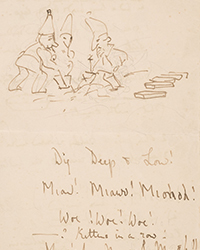
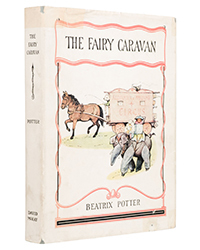
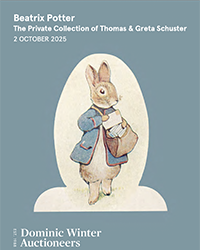
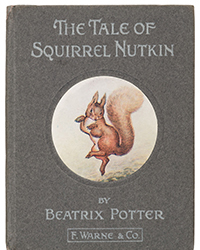
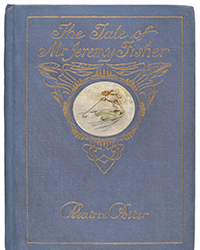
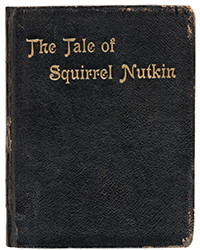
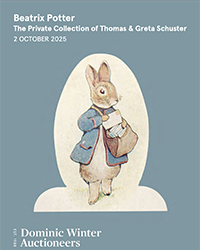
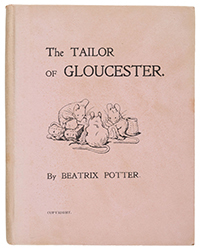
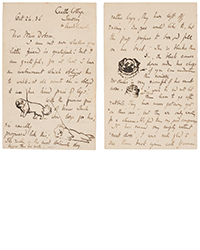
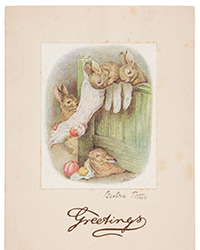
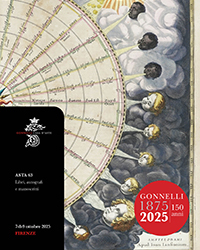
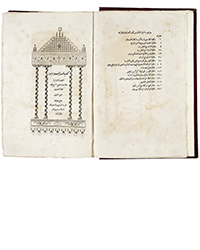
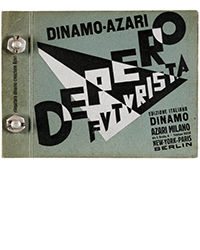
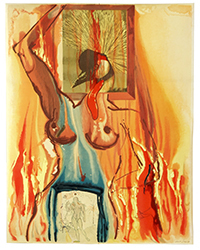
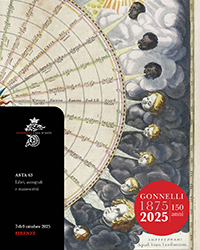
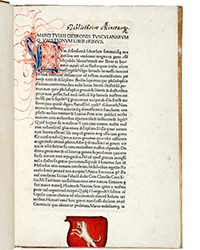
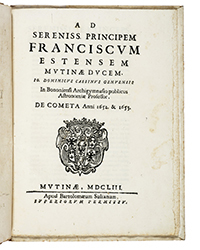
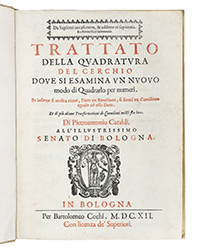
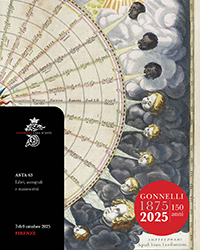
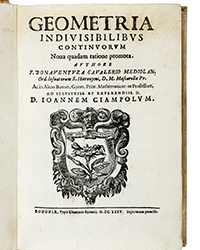
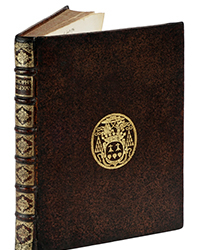
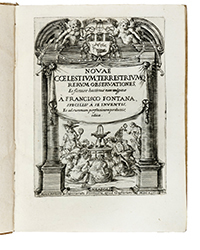
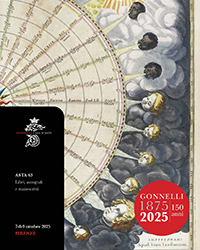
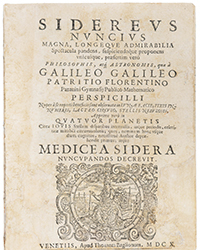
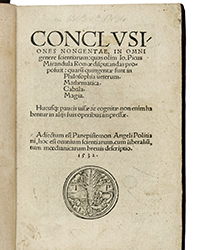
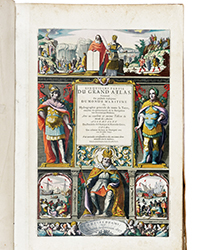



![<b>Dominic Winter, Oct. 1:</b> Buc'hoz (Pierre-Joseph). Premiere [seconde] Centurie des Plances Enluminees, 2 volumes, 1775-81. £8,000 to £12,000. Dominic Winter, Oct. 1: Buc'hoz (Pierre-Joseph). Premiere [seconde] Centurie des Plances Enluminees, 2 volumes, 1775-81. £8,000 to £12,000.](https://ae-files.s3.amazonaws.com/AdvertisementPhotos/9bc5a323-10dd-48d1-81ba-6a77146909e5.jpg)












